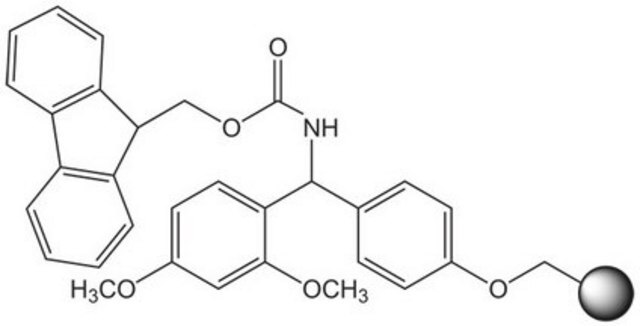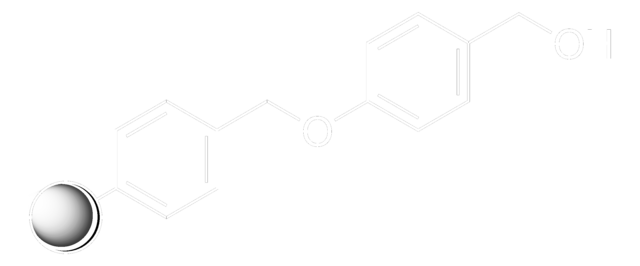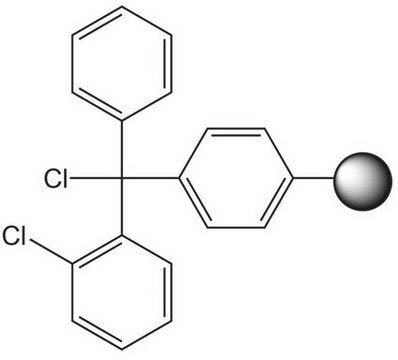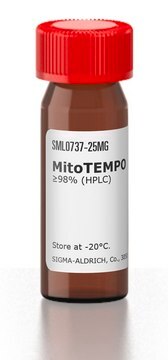76153
PEGA resin
extent of labeling: ~0.4 mmol/g loading
Synonym(s):
Poly[acryloyl-bis(aminopropyl)polyethylene glycol]
About This Item
Recommended Products
product line
PEGA
Quality Level
form
crystals
reaction suitability
reaction type: Fmoc solid-phase peptide synthesis
extent of labeling
~0.4 mmol/g loading
impurities
90% methanol
particle size
150-300 μm
functional group
amine
Looking for similar products? Visit Product Comparison Guide
General description
Application
- immobilizing enzymes in aqueous solution
- affinity purification of small-molecule binding proteins
- synthesis of peptide libraries with fluorescently labeled proteins
Packaging
Storage Class Code
11 - Combustible Solids
WGK
WGK 3
Flash Point(F)
Not applicable
Flash Point(C)
Not applicable
Personal Protective Equipment
Certificates of Analysis (COA)
Search for Certificates of Analysis (COA) by entering the products Lot/Batch Number. Lot and Batch Numbers can be found on a product’s label following the words ‘Lot’ or ‘Batch’.
Already Own This Product?
Find documentation for the products that you have recently purchased in the Document Library.
Related Content
The high swelling volume of PEGA resins makes the functionalities located within the polymer bead accessible to large biomolecules.
Our team of scientists has experience in all areas of research including Life Science, Material Science, Chemical Synthesis, Chromatography, Analytical and many others.
Contact Technical Service







